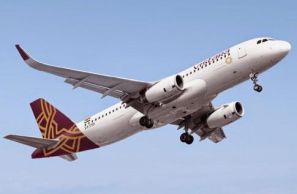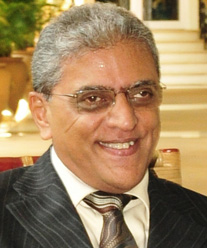 It has been eight months since Vistara has started operations in India.
It has been eight months since Vistara has started operations in India.
The full-service airline has faced multiple challenges in its run.
Prasad Menon, below, chairman of TATA SIA Airlines, says the reason behind Vistara’s low occupancy is not policy issues but stiff competition from incumbent airlines.
He spoke to Business Standard after the release of a report titled Maximising the contribution of aviation to the Indian economy, prepared by the Centre for Asia Pacific Aviation and commissioned by Tata-SIA Airlines.
Edited excerpts:
What was the need to bring out this report as the government is to come out with the draft of the civil aviation policy soon?
The report’s timings were not meant to coincide with the release of the civil aviation ministry’s draft aviation policy.
As soon as we started operations, we realised a report like this to understand the potential of the aviation sector is needed.
Our interactions with the civil aviation ministry encouraged us. Coincidentally, it got completed ahead of the release of the draft aviation policy.
I don’t think there is anything contradictory (in our report). I believe this is much more comprehensive than the draft policy.
How long did it take you to prepare the reports?
Three months.
Have you presented the report to the government?
Yes, we met the civil aviation minister and the secretary.
The report calls for abolition of the ‘5/20 rule’. However, Indian carriers are doing better on domestic routes than the international ones. . .
No, they are doing better on the international routes than domestic ones.
Do you believe an Indian carrier will do better flying abroad than only catering to the domestic sector?
We are not saying that.
That’s something dependent on a number of factors.
What we are saying is, here is a situation where 70 per cent of the Indian passengers are using foreign airlines (to fly abroad).
Here is a situation where our traffic rights are being utilised to the extent of 26 per cent. Is that a happy situation to be?
Not only are the passengers going through foreign airlines, all our trained personnel including pilots, ground staff and training facilities are also going abroad.

We are losing tremendous revenue.
Also, in this entire scenario, because we are not using our traffic rights, there will be a situation where flights into India will also start drying up.
Who is going to win?
Why do you think the current situation is prevailing where foreign carriers are taking away 70 per cent of our passengers?
This is because they (the foreign carriers) are the ones which are available.
IndiGo only flies to short-long routes and then we have Jet Airways and of course Air India.
Where do you see Vistara fitting in this situation? Would you go to long-haul or short-haul routes?
As and when the rule gets modified, we will take a call.
The report throws a light on the ‘ease of doing business’. The incumbent airlines are opposing the abolition of the ‘5/20 rule’, but the civil aviation minister is in favour of that. Do you think incumbent airlines are more hindrance in the ‘ease of doing business’ than the government?
I don’t think this argument is the right way to go with.
Yes, the incumbents are against it and you’ll find that in many cases, when a new entrant comes in, the incumbents do whatever they can to keep them out.
It’s not unnatural.
The government -- as far as the ‘ease of doing business’ is concerned -- is aware of it.
However, (a policy change) requires inputs from states and other ministries. So, it takes time to get everybody on board.
Is policy paralysis a reason behind Vistara’s low occupancy?
I think there is very strong competition.
People are beginning to understand our three-class model.
We are encouraged by the responses of our passengers.
I think it’s just a matter of time.
Did you overestimate the premium traffic in India?
No. But it takes time for people to understand.
We are seeing significant uptick and a lot of people now prefer premium economy.











 © 2025
© 2025